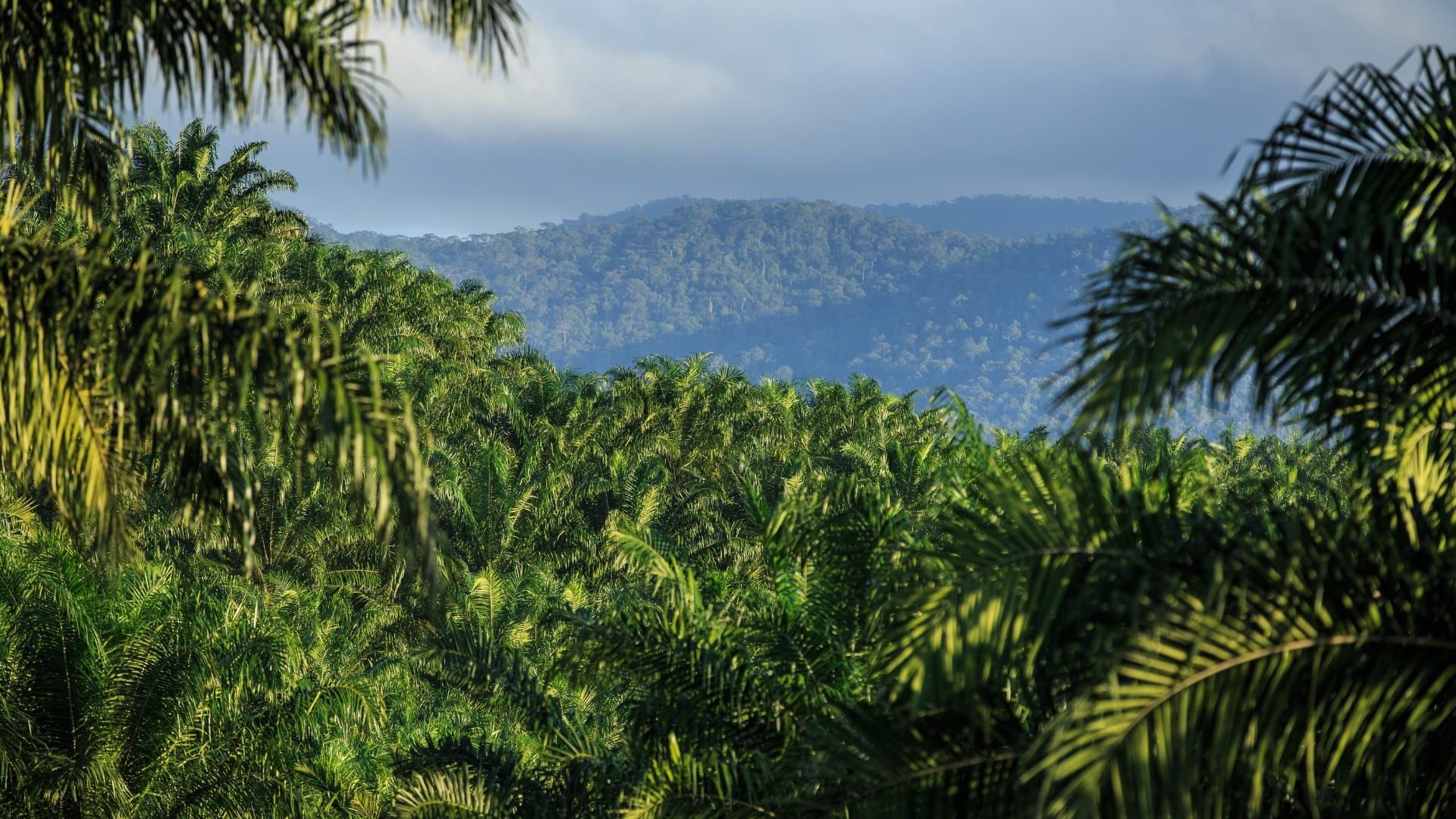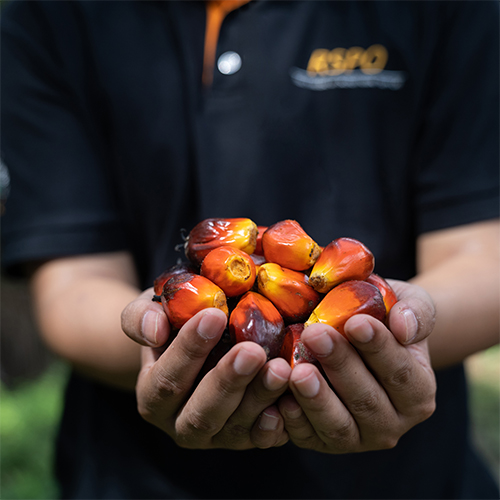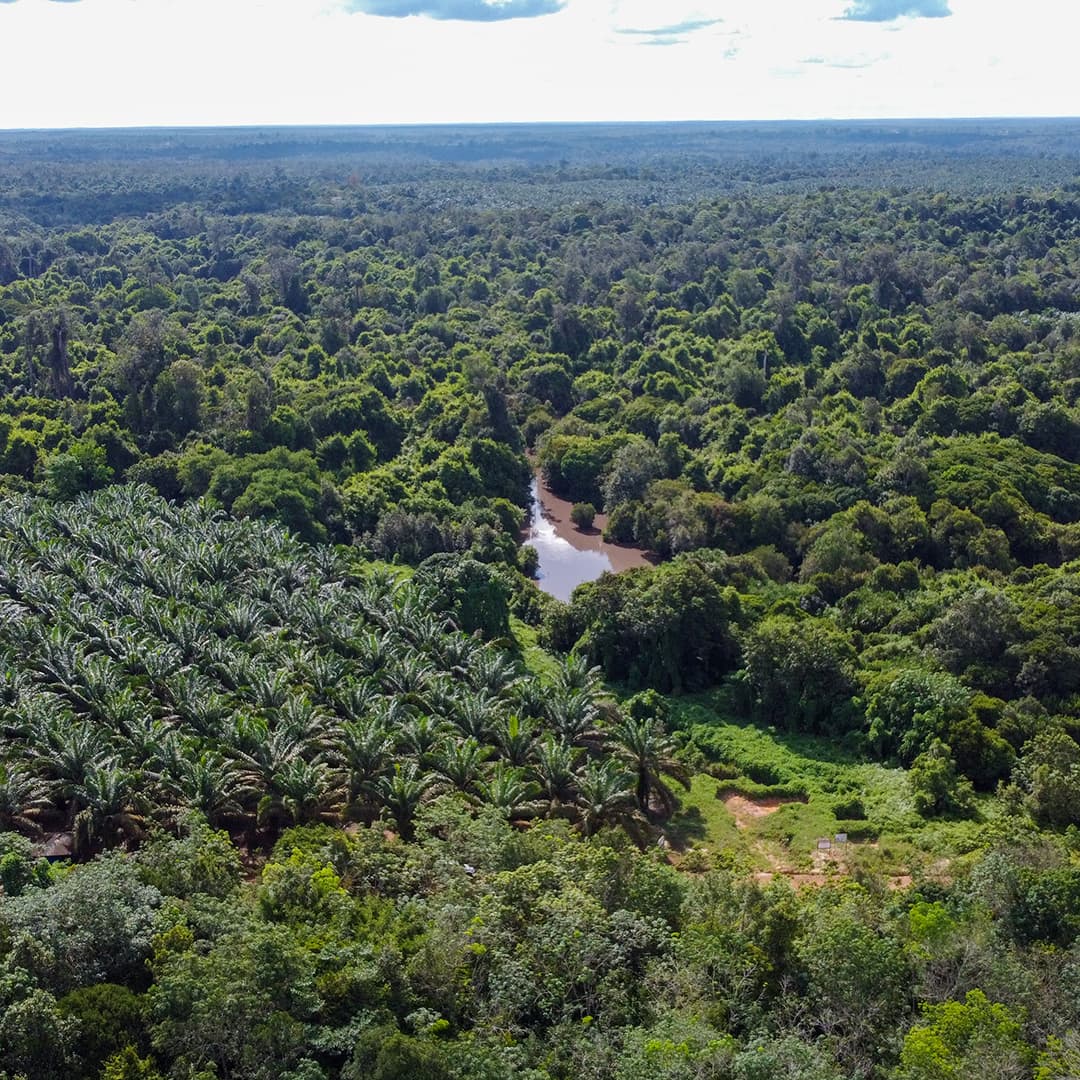Halting the domino effect of deforestation
When palm oil is produced sustainably, it helps to halt deforestation.
Deforestation doesn’t just destroy trees. It displaces wildlife and local communities that depend on natural resources for their livelihoods, sustenance and traditions. Plus it has negative impacts on the wider environment, including air and water pollution, and soil erosion.
When sustainable palm oil is produced in line with RSPO Standards, forests with areas of High Conservation Values (HCV) and High Carbon Stock (HCS) are protected and managed. This helps protect the habitats of many different species of endangered flora, animals and birds – from Sumatran tigers to South American macaws.

Limiting carbon emissions
By helping to halt deforestation, sustainable palm oil production also has a positive impact on climate change. Forests, especially tropical ones, store much more carbon than oil palm plantations – about six times the volume. So by helping to protect forests and preventing their land conversion into oil palm plantations, RSPO Members are proactively protecting carbon storage and reducing their carbon emissions.
Source: Carbon stock of oil palm plantations and tropical forests in Malaysia: A review

Prohibiting planting on peat
Since November 2018, growing oil palms in peat-rich soil is forbidden for palm oil to be produced sustainably. Planting on peat is a problem because peatlands have to be drained before planting begins. Drainage causes the peat to decompose and release carbon dioxide. What’s more, drying peat is a high fire risk, and peat fires are difficult to extinguish. They can continue to smoulder deep underground and release particulates that impact human health. So by prohibiting new planting on peat in sustainable palm oil production, carbon emissions are further reduced and fire hazards are averted.


Sustaining the environment
When certified sustainable by the RSPO, palm oil production has followed sustainable production practices and plantations have a significant positive environmental impact.
Sustainable palm oil production to our standards involves helping to halt deforestation, and ensuring no harm to endangered species, no new planting on peat and reduced carbon emissions. In short, when certified sustainable by the RSPO, sustainable palm oil production supports and protects the environment.
Representing 1% of the global vegetable oil crop production area, certified plantations produce 8.1% of vegetable oil supply. Certified plantations produce more, while requiring a much smaller area of land.
Photo Credit: RSPO/Jonathan Perugia
Photo Credit: RSPO/PT. BGA





